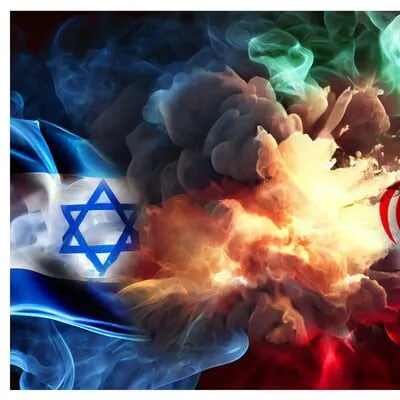[ad_1]
The ongoing conflict between Israel and Iran has introduced new uncertainties to global markets, and Indian investors are feeling the potential repercussions. Experts say that despite these tensions, Indian markets have shown resilience.
“Despite the Israel-Iran crisis and FIIs selling around Rs 4,300 crore worth of shares last month, domestic institutional investors supported Indian markets, investing over Rs 5,000 crore. Mutual funds continue to attract robust SIP flows, which touched a record high of Rs 15,200 crore last month,” said Chetan Shenoy, director and head of products and research at Anand Rathi Wealth Limited. He added: “This shows that investors are focused on long-term goals, ignoring short-term geopolitical disruptions. »
Crude oil and India’s dependence on imports from the Middle East
A prolonged conflict could have serious consequences for crude oil supplies from the Middle East, which account for about 45% of India’s oil imports. Analysts say any disruption could lead to higher crude prices.
“If this conflict escalates, oil prices could rise sharply. Currently, Brent crude is trading around $94 per barrel. A price spike could lead to higher fuel costs in India, affecting sectors like transportation and manufacturing. This could put downward pressure on equity mutual funds, especially those with high exposure to these sectors,” noted Mayank Prakash, regional head of North India at Epsilon Money Group.
Gold becomes a safe haven
Geopolitical tensions often push investors towards gold, a traditional safe haven. In India, sovereign gold bonds (SGBs) are gaining ground as gold prices approach their all-time highs, currently trading at around $2,050 per ounce.
“Gold prices are likely to rise as central banks around the world increase their reserves. Falling interest rates in the United States make gold more attractive compared to fixed income assets. SGBs, with capital gains tax exemptions on maturity and an annual interest payment of 2.5%, provide a safe and tax-efficient investment route for Indian investors,” explained Shenoy .
Shenoy also mentioned that the demand for SGB may also see a rise in the secondary market as investors prefer SGB over physical gold. Prakash added, “SGBs not only provide a safe alternative to physical gold, but also eliminate the worries related to storage and purity. The government support and fixed interest rate add to their appeal.”
Can cryptocurrencies provide hedging?
Experts believe that the Israeli-Iranian crisis is unlikely to directly affect cryptocurrency values, as these digital assets are relatively protected from geopolitical risks.
“Cryptoes are still in their infancy and do not have a defined underlying asset. However, we saw a 6.5% correction in Bitcoin prices to around $27,500 after the recent climb. This suggests that investors may not view cryptocurrencies as a hedge against instability,” Prakash said.
Market-linked pension plans in times of volatility
Long-term investment vehicles such as the National Pension System (NPS) or Unit-Linked Insurance Schemes (ULIP) could experience temporary volatility, but are generally insulated from short-term geopolitical disruptions .
“Market-linked pension schemes have exposure to multiple asset classes such as equities, debt and government securities. Even though the equity component may see some fluctuations, debt provides stability,” Shenoy said. He noted that pension plans linked to government bonds or fixed income securities are unlikely to be affected.
Strategies to protect your investments
In times of geopolitical uncertainty, it is essential to diversify your investments across asset classes. Experts recommend a balanced portfolio of stocks, debt and gold. “Diversification is the key to reducing portfolio risk. Avoid panic selling as this often results in losses,” advised Shenoy.
Key strategies for investors include:
- Review asset allocation to ensure alignment with financial goals.
- Maintain an emergency fund consisting of liquid assets like short-term debt funds.
- Avoid drastic changes in long-term investments.
Prakash noted, “For those with a diversified portfolio, gold can act as a stabilizer. A well-balanced asset mix can help minimize losses during times of market stress.
Develop a tailor-made diversification strategy
The right diversification strategy will vary depending on each investor’s risk tolerance, investment horizon and goals. “For example, one client may hold 60% equity and 40% debt, while another may hold 40% equity, 30% debt and 30% gold. Both may have similar risk preferences but choose different asset allocations,” Prakash said.
Shenoy added: “It is important not to overload stocks in times of uncertainty. Maintaining some high-quality debt ensures stability. Strategic asset allocation should remain unchanged during crises as it is a long-term plan. Changing it in response to short-term events could be detrimental.
Prakash advised, “The old adage ‘don’t put all your eggs in one basket’ applies here. An ideal diversification strategy includes gold, which can serve as a hedge against uncertainty. A portfolio with too many stocks may not be able to withstand sudden market drops. The goal should be to hold a balance of assets that can withstand shocks and continue to generate returns over the long term.
First publication: October 4, 2024 | 4:07 p.m. STI

